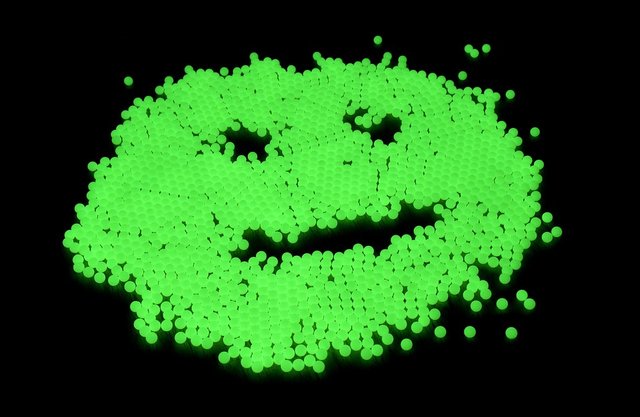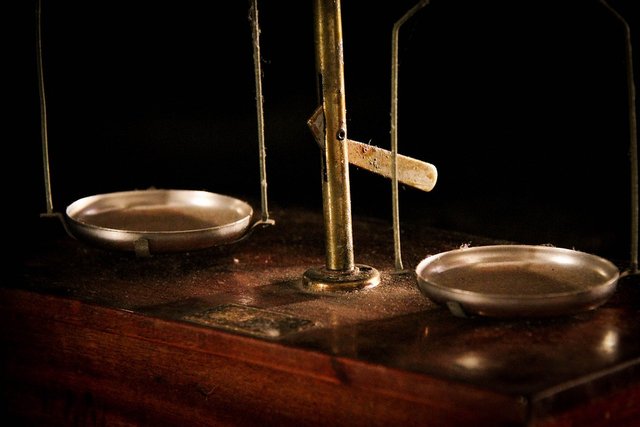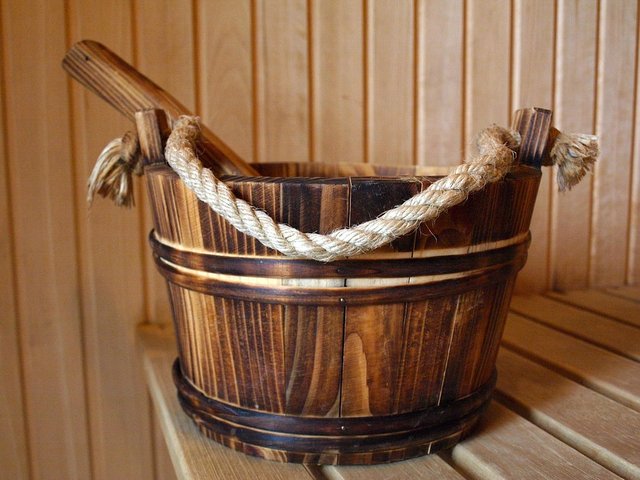Buckets of urine - Enlarging the periodic table of elements
The alchemist raises his hand, waving it in the air in a magic attempt to stop time. His eyes wander around the ceiling of his lab in a ritual only he understands. I between his thick beard and mustache, his lips display a glimpse of something that looks like amazement. Eureka!. He has a knee on the ground adopting the classic poets' posture in a moment of revelation. The clock says it is 11 PM. The room is plunged in shadows. A few inches from his face, something glows with a ghostly appearance. In that bottle, just distilled, a major discovery brews: And unknown and refulgent substance. Still with his hand up and looking at the ceiling, the alchemist decides to baptize it: phos (light) & phoros (to bring).
Phosphorus.

The alchemist Hennig Brand found phosphorus.
IT probably didn't happen like that, but some classic painting depicts it as such -epic- moment. Mainly because Brand was not looking for that element, he was looking for the Philosopher's Stone (lapis philosophorum). Second reason? Because, inspired by alchemy theories he worked with liters and liters of human urine.
It is not crazy to believe that the discovery itself happened in a rather "rancid" atmosphere, among buckets and buckets of urine and the eventual scream from neighbors complaining about the stench. (Not to mention, his wife... that actually paid for the experiments!)
Hennig Brand's role is important because of two reasons.
He was not only the first one able to isolate phosphorus. He also wears the badge of "being the first man that ever discovered an element that was unknown until then" (before modern science, of course). Perhaps this is why many people call him "The last alchemist".

Eight years before his experiments with urine gave any results, Robert Boyle defined the chemical elements. Back then the list was pretty short: It was composed by the nine known from ancestral times (gold, silver, copper, iron, lead, tin, mercury, sulfur and carbon) and other three that medieval alchemy added: Antimony, found by Al Razi (Rhazes); arsenic, discovered by Albert von Bollstädt (Albertus Magnus); and zinc found by the one that held one of the most unreadable names in human history, Philippus Aureolus Theophrastus Bombastus von Hohenheim (His friend and we called him "Paracelsus" for the sake of pronunciation).
How did Brand made it into this list?
After his participation in the Thirty Years' War, Hennig married a very wealthy woman that allowed him to follow his passion: Alchemy, khrysopeya to be exact, looking to transmute metals into gold.
Influenced by mystic theories, during the 2nd half of the 17th century he started looking for the Philosopher's Stone in urine. He did so, with a perseverance worthy of mention. Gathered 50 buckets of pestilent the liquid and let it rot (so that it would stink even more?). Later, he boiled it until he acquired a mush of it and heated it up with sand, distilling phosphorus from the mixture.

That wonderful substance glowed in the dark and in occasions it combusted spontaneously. The process took several months and it is estimated that Brand used over 5000 liters of urine to produce 120 grams of phosphorus. The material acquired was, by the way, white phosphorus, one of its allotropic forms (Greek: allos, other; tropos, form) that can be a powerful poison.
Overprotective with his discovery, he shared it with only a few of his friends. The news about the properties of that "cold fire" spread like fire in gunpowder all over Germany.
Brand was granted funds to start a laboratory to produce phosphorus in major quantities. Of course prime materials were a major concern that was not unattended: Urine that came from the barracks and mines nearby supplied for the need.
Hennig died in 1692. Several decades later, in 1737, Paris' Académie Royale des Sciences bought the patent to make the process public, favoring 50 years later for Karl Scheele to come up with a much simpler method that did not require urine.

The element that cheers up our fireworks, light up our fires, fertilize our soils... Comes from 50 buckets full of Urine.
OMG you have got to love science!
It's amazing to see how far we have progressed in not a right lot of time 😊
It all started with pioneers who wanted to change the world and do it differently
This was a revamp of a story a biology teacher told me about "the elements", I spiced it up a bit adding a few things I've learned over time. But, essentially, she mentioned that people used to have a VERY limited knowledge of elements "per se", where they included: Dirt, clay and spirits (gaseous forms).
Actually, it started thanks to a greedy soul looking forward to convert cheap lead into gold!!!
Thank you for the lesson appreciate your time and effort I look forward to more 😊
Love it! I'm super into the history (and philosophy) of science, I'll be posting about that stuff a bit myself. Those early days before the proto-scientific method had fully spread from the Middle East into Europe were full of weird little stories like this.
Do you remember the Horrible History books, I had a great one on Horrible Science, well worth looking out for!
I am actually not familiar with them! Googling them up!
My fetish is actually this kind of books!
A History of Inventions and Discoveries
Old books smell like glory, but digitalized ones also do!
I'm sure his wife was mightily PISSED off.
Sorry, I'll let myself out.
upvoted and resteemed
This post has received a 6.68 % upvote from @booster thanks to: @renzoarg.
Science and scientists are weird, lol!